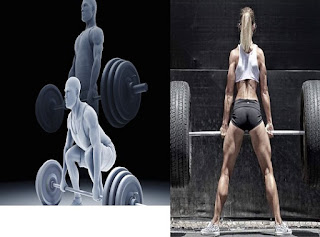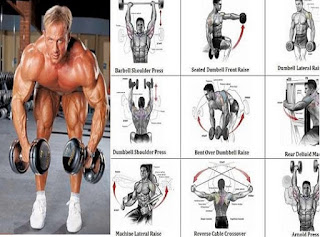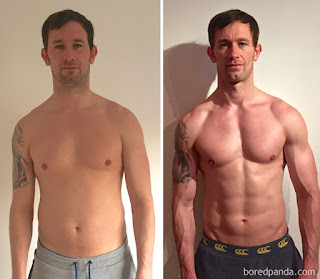How to increase your deadlift without deadlifting?
How to increase your deadlift without deadlifting
If you are a weight trainer who is training with weights because you want to increase the amount of muscle that you carry then you will know that the only way you are going to get more muscle is to lift heavier weights. It might sound very obvious and very reasonable to assume the only way to get stronger is by lifting heavier weight with the same movements.
This might apply to all other movements but deadlift is an exception to this rule. There are two components to training the deadlift efficiently and the reason why you train using the deadlift itself. The first is strength and the second is power.
It all started back in 1968 when a strongman called Bill Starr smashed the world deadlift record without ever having done a deadlift before, which obviously caused havoc amongst the powerlifting community in those days. Bill explained that doing deadlift puts too much strain on your lower back.
He said that heavy deadlifts with 500-600 pounds fatigued the lower back and required longer recovery times. Not many people paid much attention to him. Powerlifters, as a whole, are still over training their deadlifts. Another world champ in the 1970's called Loren Betzer said the same.
He wrote an article "To Deadlift More, Don't Deadlift" where Betzer described himself as a conventional deadlifter. As with most conventional deadlifters, Betzer was blowing the weight off the floor only to have it stall out higher up. By dropping the deadlift from his training program, Betzer ended up putting 40 pounds on it in 5 months.
According to Starr, there were four exercises that carried over to the deadlift and they are power cleans, heavy shrugs, hi-pulls and good mornings. Power cleans and hi-pulls were used to build speed, as well as working the traps. Olympic style shrugs were also performed for development of the traps which are vital in finishing the top part of the deadlift.
But Starr said that the best of these are good mornings. Good mornings contributed the most to pulling strength, and he trained these with heavy poundage. Betzer on the other hand added 40 pounds to his deadlift in five months by breaking down his deadlift training into three areas:
The first is the blast-off, the knee area and the mid-thigh area. For the blast-off, Betzer found working the squat to be the best exercise. For the knee area, Betzer's exercise of choice was, again, good mornings. And finally, for the mid-thigh area, Betzer selected deadlifts off 6-inch blocks. Block deadlifts are essentially the same as rack deadlifts.
The bottom line is that the deadlift is not a skill lift. It simply overworks the lower back and as a result requires longer recovery periods between training sessions. In the July 1981 Powerlifting USA article, "The Biomechanics of Powerlifting", Dr Tom McLaughlin cautioned, "...whatever you do, DON'T OVER TRAIN THE LOWER BACK. These muscles fatigue faster than almost any other muscle group in the body and also take more time to recover."
Replace the deadlift for lower back training with good mornings. Good mornings strengthen the lower back muscles for deadlifting without over training them. All the great deadlifters like Starr, Betzer and Simmons all regard good mornings as the breakfast of champions for strength training the deadlift.
source: http://www.strengthcats.com
If you are a weight trainer who is training with weights because you want to increase the amount of muscle that you carry then you will know that the only way you are going to get more muscle is to lift heavier weights. It might sound very obvious and very reasonable to assume the only way to get stronger is by lifting heavier weight with the same movements.
This might apply to all other movements but deadlift is an exception to this rule. There are two components to training the deadlift efficiently and the reason why you train using the deadlift itself. The first is strength and the second is power.
It all started back in 1968 when a strongman called Bill Starr smashed the world deadlift record without ever having done a deadlift before, which obviously caused havoc amongst the powerlifting community in those days. Bill explained that doing deadlift puts too much strain on your lower back.
He said that heavy deadlifts with 500-600 pounds fatigued the lower back and required longer recovery times. Not many people paid much attention to him. Powerlifters, as a whole, are still over training their deadlifts. Another world champ in the 1970's called Loren Betzer said the same.
He wrote an article "To Deadlift More, Don't Deadlift" where Betzer described himself as a conventional deadlifter. As with most conventional deadlifters, Betzer was blowing the weight off the floor only to have it stall out higher up. By dropping the deadlift from his training program, Betzer ended up putting 40 pounds on it in 5 months.
According to Starr, there were four exercises that carried over to the deadlift and they are power cleans, heavy shrugs, hi-pulls and good mornings. Power cleans and hi-pulls were used to build speed, as well as working the traps. Olympic style shrugs were also performed for development of the traps which are vital in finishing the top part of the deadlift.
But Starr said that the best of these are good mornings. Good mornings contributed the most to pulling strength, and he trained these with heavy poundage. Betzer on the other hand added 40 pounds to his deadlift in five months by breaking down his deadlift training into three areas:
The first is the blast-off, the knee area and the mid-thigh area. For the blast-off, Betzer found working the squat to be the best exercise. For the knee area, Betzer's exercise of choice was, again, good mornings. And finally, for the mid-thigh area, Betzer selected deadlifts off 6-inch blocks. Block deadlifts are essentially the same as rack deadlifts.
The bottom line is that the deadlift is not a skill lift. It simply overworks the lower back and as a result requires longer recovery periods between training sessions. In the July 1981 Powerlifting USA article, "The Biomechanics of Powerlifting", Dr Tom McLaughlin cautioned, "...whatever you do, DON'T OVER TRAIN THE LOWER BACK. These muscles fatigue faster than almost any other muscle group in the body and also take more time to recover."
Replace the deadlift for lower back training with good mornings. Good mornings strengthen the lower back muscles for deadlifting without over training them. All the great deadlifters like Starr, Betzer and Simmons all regard good mornings as the breakfast of champions for strength training the deadlift.
source: http://www.strengthcats.com




Commentaires
Enregistrer un commentaire